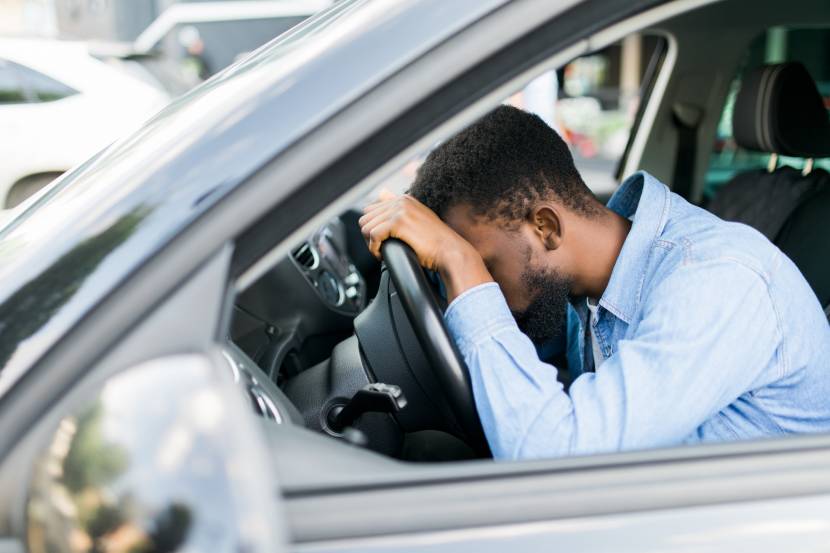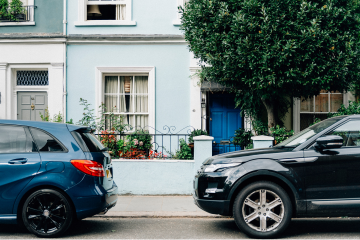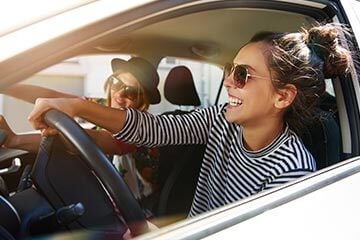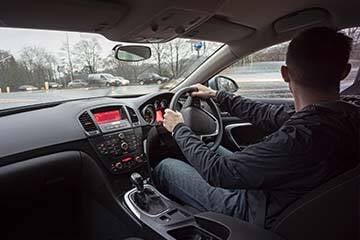When it comes to taking a break, and even having a nap, the Highway Code is clear on this. You can sleep in your car, but there are a few conditions you should know before you do.
So before you pull up and have a sleep in your car, there are some circumstances to be aware of.

What does the Highway Code say about sleeping in the car?
Rule 91 of the Highway Code recommends taking a “minimum break of 15 minutes after every 2 hours of driving.”
And if you’re feeling especially tired, it suggests drinking “2 cups of caffeinated coffee and taking a ‘short nap’ for at least 15 minutes.”
Alison Ashworth from Ashworth Motoring Law says:
“Whether or not you can legally spend the night in your car depends on several factors, such as where you’re parked, and whether you have any alcohol or drugs in your system.”
So, if you’re under the influence or parked somewhere you shouldn’t be, it's illegal to sleep in your car.
When is it illegal to sleep in your car?
It's illegal to sleep in your car if you're under the influence of alcohol or drugs and you were driving or intending to drive. If you can prove you weren’t driving or intending to drive while under the influence you might not get a penalty. The law states that:
“...A person shall be deemed not to have been in charge of a vehicle if they prove that at the material time the circumstances were such that there was no likelihood of them driving it so long as they remained unfit to drive through drink or drugs.”
The onus is on you to prove that you weren’t going to use the vehicle. But the police might believe you were trying to drive the vehicle under the influence if you:
- Attempted to gain entry to the vehicle and failed
- Had keys to the vehicle on you
- Intended to take control of the vehicle
It depends on context and intention.
If the police believe you were intending to drive under the influence, you could face a maximum of a 3 months’ prison sentence, an unlimited fine or a minimum 1-year ban.
The police will probably take into account where you're sleeping in your car too. If it's unsafe or illegal, they might charge you. This applies whether you're under the influence or not.
Having a drink-driving related conviction could increase the cost of your car insurance. And remember, a drink driving ban could also prevent you travelling abroad.
Compare car insurance quotes
Where can you park up and sleep overnight?
If you're intending to sleep in your car, make sure you look for a safe place to park. It's legal to do so on residential streets but be aware of any parking restrictions.
Be careful with car parks too. Some may lock their gates overnight or have a 24-hour charging system in place – which could make for an expensive night’s stay.
Alex Garner, a Road Traffic Specialist from Stephensons Solicitors, says:
“It’s not an offence to sleep in your car, but it’s the location that’s important.
“For example, you can't expect to pull up and park on double yellow lines.”
Some car parks also implement local byelaws that prevent overnight stays, especially in town centres or coastal locations.
“Sleeping in your vehicle is likely to attract attention. Worried residents may fear for your safety, or their own, and call the police.
“And trespassing onto private land could lead to a rude awakening from the police if you’re reported.”
Motorway services and sleeping in your car
You can stop in the motorway services for a short sleep if you need too. Many are available 24/7.
You can also use the facilities after you've had sleep too. All motorway service operators offer free parking for up to 2 hours, according to Moto-way.
Make sure you set an alarm though, as after 2 hours you’re liable for a charge. Some sites have automatic number plate recognition (ANPR) systems
These monitor the cars entering and exiting. Service stations aren't standard, and some have strict limits on how long you can stay.
You should never stop on the hard shoulder for a snooze. The hard shoulder is for emergencies only.
Sleeping in lorries, caravans and motorhomes
The same rules apply for sleeping in lorries, caravans and motorhomes. If you're not under the influence and you're parked somewhere safe and legal, you should be able to sleep in these vehicles.
Larger vehicles may find it harder to find safe parking though. Many car parks have height restrictions, and local bylaws may prevent certain vehicles – like caravans or motorhomes – from parking overnight.
While it's not illegal to park a caravan on the road, make sure it’s neither causing any obstruction or parked dangerously.
How to sleep in your car safely
Consider adding things in your boot that would make you feel as comfortable as possible if you're planning to sleep in your car. This is in addition to your emergency kit. Consider packing:
-
A pillow
-
A sleeping bag and/or blanket
-
Energy bars
-
Snacks and water
Don’t park where you feel vulnerable, exercise caution, lock your doors and crack the window just enough to allow some fresh air in.
It’s best not to leave the air conditioner or heating on either. It’s bad for the environment, wastes fuel and it’s placing unnecessary wear on the vehicle by running the engine. You could also get a fine for idling your engine.
Don’t leave your engine running in an enclosed space in particular, as there’s a small risk of breathing in noxious fumes.
It’s a good idea to take breaks on long journeys, particularly when you feel tired. Just make sure you're doing so legally and safely.







